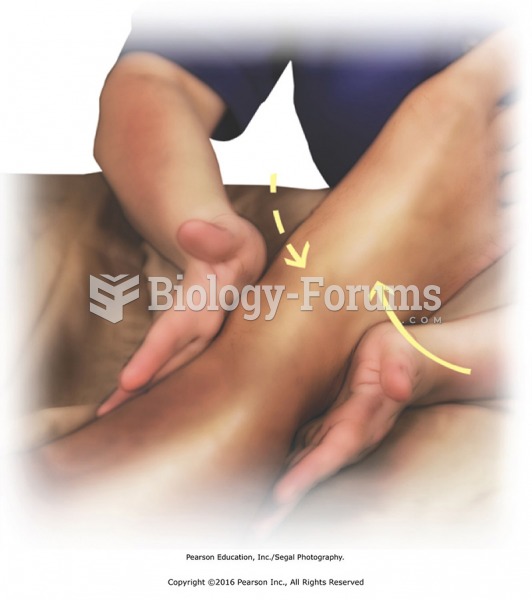|
|
|
The first monoclonal antibodies were made exclusively from mouse cells. Some are now fully human, which means they are likely to be safer and may be more effective than older monoclonal antibodies.
Excessive alcohol use costs the country approximately $235 billion every year.
Parkinson's disease is both chronic and progressive. This means that it persists over a long period of time and that its symptoms grow worse over time.
In the United States, congenital cytomegalovirus causes one child to become disabled almost every hour. CMV is the leading preventable viral cause of development disability in newborns. These disabilities include hearing or vision loss, and cerebral palsy.
The U.S. Preventive Services Task Force recommends that all women age 65 years of age or older should be screened with bone densitometry.
 The opening and closing of voltage-activated sodium and potassium channels during the three phases ...
The opening and closing of voltage-activated sodium and potassium channels during the three phases ...
 Reconnect the lower back with the shoulder with a few deep effleurage strokes. Then place one hand ...
Reconnect the lower back with the shoulder with a few deep effleurage strokes. Then place one hand ...
 Mobilize the ankle using the heels of the hands. Place the heels of the hands just under the ankle ...
Mobilize the ankle using the heels of the hands. Place the heels of the hands just under the ankle ...




